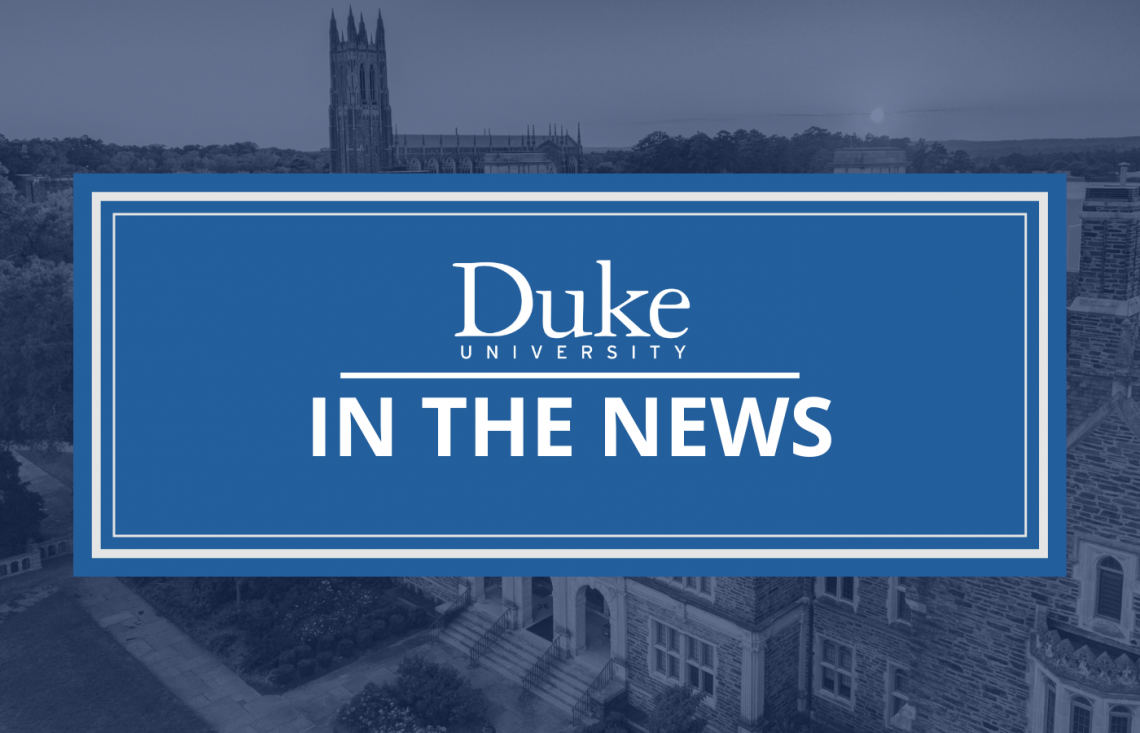Military Tensions, Children's Immunity and COVID Reopenings: Duke in the News This Week

Duke scholars daily share their expertise with the media on stories of major global, state and local importance, including the COVID-19 pandemic, U.S. presidential election and local environmental issues. Scholars regularly appear in The New York Times, The Washington Post, CNN and local news outlets.
Each day Duke’s news site updates with nearly two dozen new media clips. Visit the news site to view more Duke scholars in the media.
Here are highlights from the past week:
USA Today/Yahoo! News
Trump’s Tensions With the Military Grow
The discord between Trump and military leaders isn't a result of one breaking point, says political scientist Peter Feaver, an expert on civilian-military relations at Duke. Instead, "I would view it as more of an erosion and a death of 1,000 cuts,” he says.
The New York Times
Is Staying Home Harming Your Child’s Immune System?
When young kids are regularly exposed to small amounts of potential allergens it trains their bodies to handle those things well in the future. “The idea is that, if you’re exposed to something over and over again, you become tolerant to it rather than have an overactive response,” says Dr. Sallie Permar, a pediatric immunologist at the Duke University School of Medicine.
The Charlotte Observer
In Tight NC Presidential Race, Black Voters Could Make The Difference
Polls show presidential candidates Donald Trump and Joe Biden neck-and-neck in North Carolina. Political scientist Kerry Haynie offers comments on how Black voters in purple NC could determine who becomes the next president of the United States.
CNN
Study: Confirmed Coronavirus Cases in US Don't Show 'Total Burden Of The Pandemic’
A new report from the Duke-Margolis Center for Health Policy and the Rockefeller Foundation says the only way the United States can control the pandemic is to perform as many as 200 million COVID-19 tests every month well into next year. We’re nowhere near that capacity now, the report says.